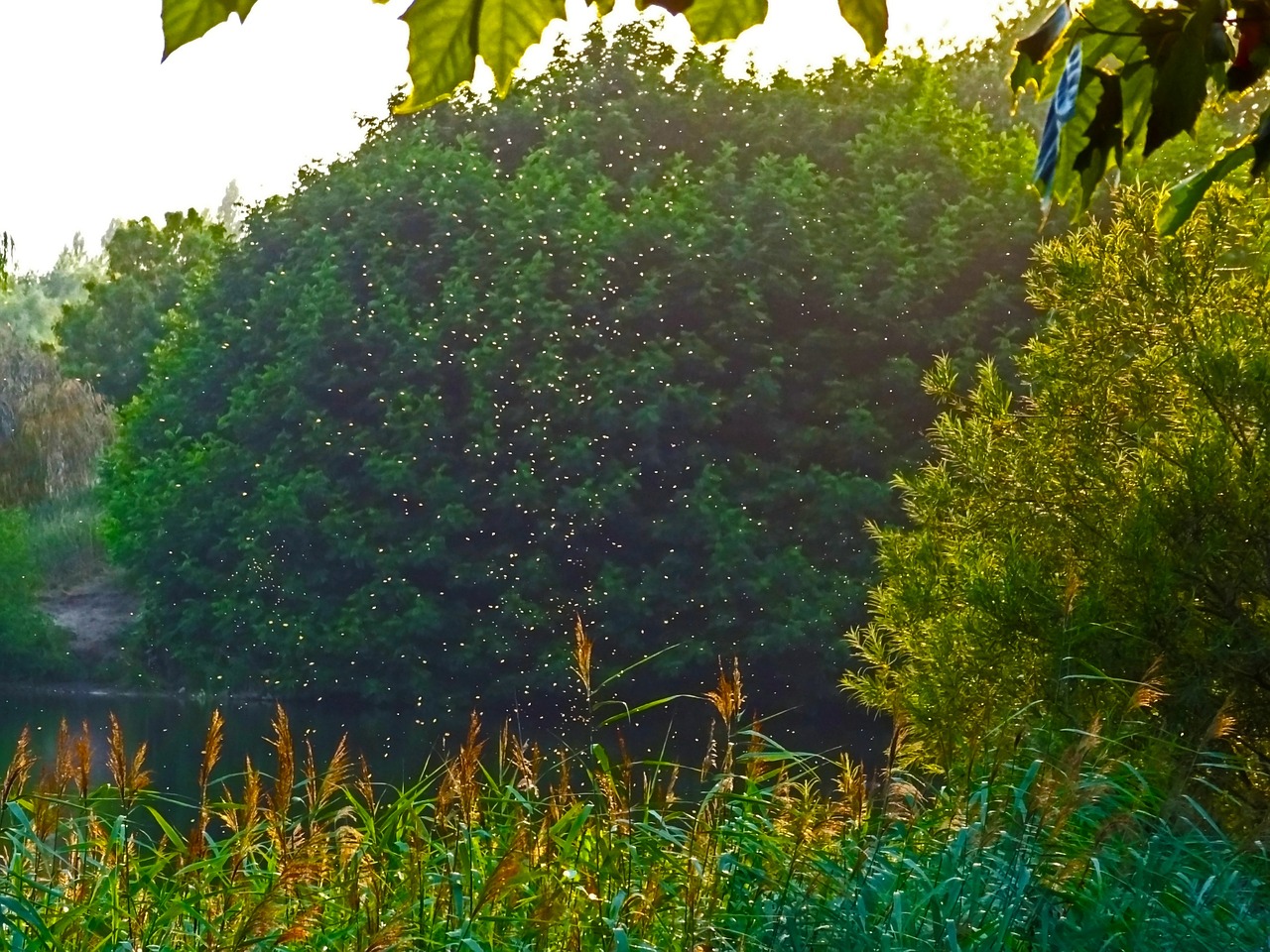
Learn how to reduce mosquitos in your landscape this summer.
We all want to enjoy some outdoor time in our backyards this summer, but no one wants to sit in a lawn full of mosquitoes. Mosquitoes thrive in warm weather, and can quickly ruin your relaxing time soaking up the sun or enjoying dinner on your patio. Continue reading for some tips on how to prevent the pesky insects from taking over your landscape.
Eliminate Breeding Areas
Eliminating breeding areas is one of the most effective ways to reduce mosquito populations. Most mosquitos require undisturbed standing water for several days in order for eggs to mature and emerge. The Maryland Department of Agriculture recommends the following to eliminate areas where mosquitos lay their eggs.
- Clean rain gutters to allow water to flow freely.
- Remove old tires or drill drainage holes in tires used for playground equipment.
- Store plastic wading pools inside or turn them upside down when not in use.
- Turn over or remove clay pots and plastic containers.
- Dispose of all empty beverage containers, plastic wrappers, discarded toys, etc.
- Check for trapped water in plastic or canvas tarps used to cover boats, pools, etc. Arrange the tarp to drain the water.
- Pump out bilges in boats. Turn canoes and small boats upside down for storage.
- Replace water in bird baths at least twice a week.
- Remove pet food and water dishes that are not being used.
- Flush livestock water troughs twice a week.
- Don’t leave garbage can lids lying upside down. Be sure water does not collect in the bottom of garbage cans.
- Flush water in the bottom of plant holders twice a week.
- Fix dripping outside water faucets.
- Turn wheelbarrows upside down when stored outside.
- Check around construction sites or do-it-yourself improvements to ensure that proper backfilling and grading prevent drainage problems.
- Check ornamental ponds, tree holes and water-holding low areas for mosquito larvae. Call Scientific Plant Service if you find, or suspect, mosquito larvae are present.
- If ditches do not flow and contain stagnant water for one week or longer, they can produce large numbers of mosquitoes. Call Scientific Plant Service to have these areas treated. Do not attempt to clear these ditches because they may be protected by wetland regulations.
Outdoor Lights
Mosquitoes are very attracted to lights, but outdoor lighting is generally a very important element to your landscape. Replace your outdoor lights with yellow “bug” lights since mosquitoes will be less attracted to them compared to ordinary lights. Also, be aware that many types of mosquitoes are most active around sunrise and sunset, so do your best to schedule your outdoor activities around these times.
Tips for Avoiding Mosquito Bites
- Avoid areas of high mosquito infestation.
- Avoid unnecessary outdoor activities at dawn and dusk when mosquitoes are most active.
- Wear long pants, long-sleeve shirt, and a hat when outdoors.
- Use mosquito repellents containing DEET. Consult a physician before applying DEET to young children.
- Restrict the outdoor play of your children if mosquitoes are present.
- Drain all water-holding outdoor containers around the home.
- Inspect basements and crawl spaces. If they are flooded, drain as quickly as possible.
- The very young, the elderly and persons with depressed immune systems are at most risk for acquiring disease from mosquito bites.
How Can Scientific Plant Service Help?
Scientific Plant Service is certified and licensed to evaluate and treat mosquito populations. Depending on the site conditions, a customized plan will be developed for your consideration. Options include finding and eliminating standing water, use of ultra-fine fogging to eliminate adult breeding mosquitos, treatment of perimeter areas with residual insecticide, and use of organic insect repellents.
Scientific Plant Service Is Your Go-To Source In Landscape Healthcare
Scientific Plant Service, located in Baltimore, is a privately-owned corporation, chartered in Maryland in 1957 by Frank J. Burke. We started as a full-service Arborist specializing in the care of shade trees and ornamental shrubs, but today we are a lawn and total landscape care company that is a huge part of the community. From aquatic environments and snow management to deer and mole control, SPS has services tailored specifically for your lawn and landscape.
We offer services in Maryland, Washington DC, and Virginia, including Harford, Baltimore, Carroll, Frederick, Howard, Anne Arundel, Montgomery, Prince Georges, Talbot, Queen Anne’s, and Calvert counties in MD, as well as Loudoun County, Fairfax County, Arlington, Alexandria, and Falls Church in VA. For more information, contact us online, or call us at 410-321-0970. Be sure to follow us on Facebook, Twitter, LinkedIn, and Pinterest!

